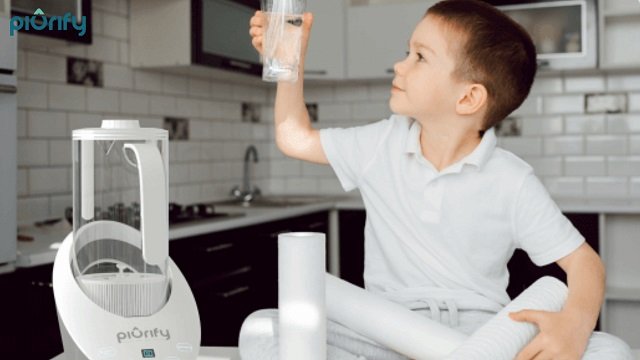In recent years, the health and wellness community has witnessed a surge of interest in alternative therapies and natural remedies. Among these, hydrogen water has emerged as a promising contender, touted for its potential therapeutic hydrogen water benefits. While the concept of hydrogen-infused water may sound novel, its roots trace back to the well-established field of molecular hydrogen therapy.
Hydrogen water, also known as hydrogen-rich water or molecular hydrogen water, is simply water infused with molecular hydrogen (H2) gas. Molecular hydrogen, despite its simplicity, exhibits remarkable antioxidant properties and has been extensively studied for its potential health benefits. Unlike traditional antioxidants, which can be limited by their size and ability to penetrate cellular membranes, molecular hydrogen possesses the unique ability to diffuse freely across cellular barriers, effectively neutralizing harmful free radicals.
The Therapeutic Potential:
Research surrounding the therapeutic potential of hydrogen water spans various fields, including medicine, sports science, and wellness. One of the most compelling areas of study revolves around its role in combating oxidative stress.Oxidative stress happens when antioxidants and free radicals don’t work together the way they should. It is linked to the development of many long-term diseases, such as cancer, heart disease, and neurodegenerative diseases. By scavenging detrimental free radicals, hydrogen water has shown promise in mitigating oxidative damage and potentially reducing the risk of chronic diseases.
Beyond recovery, hydrogen water has implications for enhancing physical performance and supporting athletic endeavors. Exercise-induced oxidative stress can impair muscle function and delay recovery post-workout. By consuming hydrogen water, athletes may benefit from its ability to attenuate exercise-induced oxidative damage, potentially improving performance and hastening recovery times.
The Science Behind Hydrogen Water:
At the crux of hydrogen water’s therapeutic prowess lies its ability to act as a selective antioxidant. Molecular hydrogen selectively targets and neutralizes the most harmful free radicals, such as hydroxyl radicals (•OH) and peroxynitrite (ONOO-), while sparing beneficial reactive oxygen species (ROS) involved in cellular signaling and homeostasis. This unique property distinguishes molecular hydrogen from conventional antioxidants, which often lack specificity and may inadvertently disrupt redox signaling pathways essential for cellular function.
Furthermore, molecular hydrogen exhibits multifaceted mechanisms of action beyond its antioxidant capacity. It has been shown to upregulate endogenous antioxidant systems, including superoxide dismutase (SOD), catalase, and glutathione peroxidase, bolstering the body’s innate defense mechanisms against oxidative stress. Additionally, hydrogen may exert cytoprotective effects by modulating gene expression, reducing inflammatory cytokine production, and preserving mitochondrial function.
Clinical Evidence And Research:
More and more preclinical and clinical data supports the idea that hydrogen water could be used as a medicine. Researchers have shown that hydrogen water can help with a wide range of diseases in both cell cultures and animals. These diseases include cardiovascular problems and neurodegenerative diseases. These studies have given us important information about how hydrogen’s healing benefits work, which sets the stage for future tests on humans.
In the medical world, several randomized controlled studies (RCTs) have looked into how hydrogen water can help treat different types of patients. For example, a randomized crossover study in the journal Diabetes, Obesity & Metabolism looked at how hydrogen-rich water affected insulin resistance and metabolic markers in people with type 2 diabetes. The data showed that drinking hydrogen water made insulin sensitivity and lipid profiles better, which suggests that it might help with managing diabetes.
In the same way, studies with people who have metabolic syndrome, rheumatoid arthritis, and other inflammatory conditions have shown encouraging results, suggesting that hydrogen water may help ease symptoms and improve signs of disease activity. More study is needed to find out the best ways to dose hydrogen water and what effects it has in the long term, but what we already know shows that it could be useful as an extra tool in clinical practice.
Practical Considerations And Recommendations:
Incorporating hydrogen water into one’s wellness routine can be achieved through various means, including hydrogen-generating tablets, hydrogen-infused water pitchers, and hydrogen-generating devices. It is important to note that the efficacy of hydrogen water may depend on factors such as hydrogen concentration, duration of consumption, and individual variability in response.
For optimal results, individuals are advised to consume hydrogen water consistently as part of a balanced lifestyle encompassing healthy dietary choices, regular physical activity, and stress management techniques. Even though hydrogen water might be helpful for healing, it is not meant to replace regular medical care or changes in lifestyle that are recommended by medical experts.
Conclusion:
Hydrogen water represents a compelling avenue for promoting health and well-being, offering a natural and accessible means of combating oxidative stress, inflammation, and metabolic dysfunction. From athletes seeking to optimize performance to individuals managing chronic health conditions, the therapeutic benefits of hydrogen water hold promise across diverse populations. As research continues to elucidate its mechanisms of action and clinical applications, hydrogen water stands poised to transition from a recovery aid to a preventive measure, empowering individuals to proactively safeguard their health and vitality.

